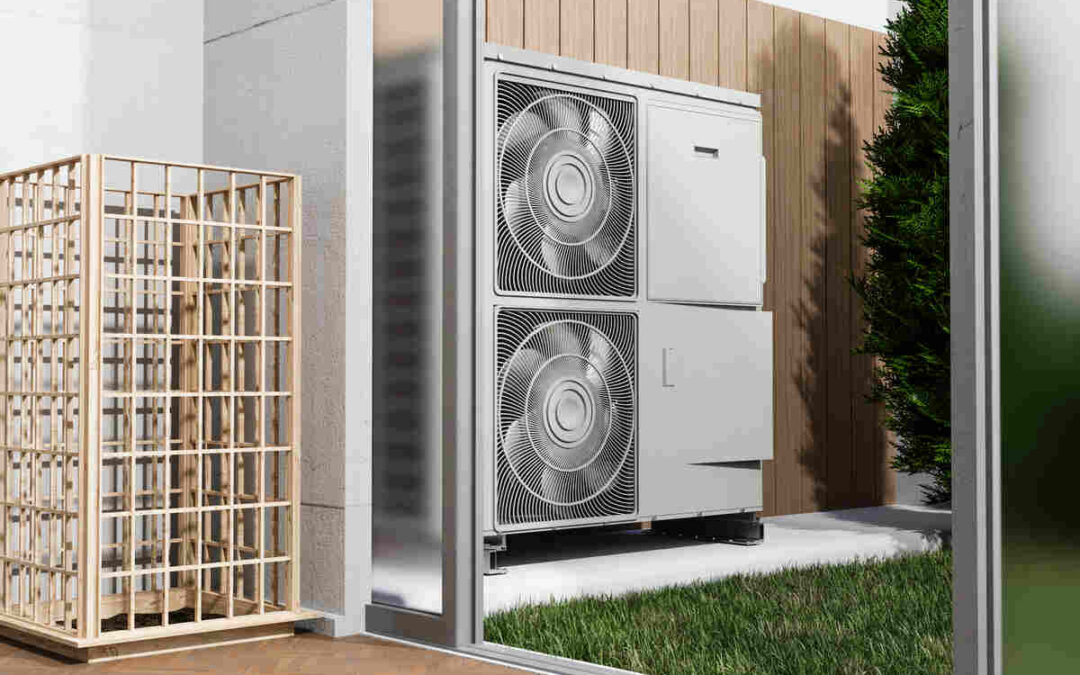So, you’ve decided to have an air conditioner installed in your Rohnert Park home. Congratulations: you’re about to experience much less discomfort during the year’s warmest months—that is, assuming your unit works the way you’re hoping it will. Most air conditioners function just fine after being installed, but sadly this is not always the case. In fact, a sizeable portion of energy efficiency problems and resultant mechanical failures can ultimately be traced back to improper air conditioning installation practices.
The installation of your air conditioner is one of the most critical aspects of your new ownership. To use a rather blunt metaphor: you want to start on the right foot, so you don’t fall on your face after a couple of steps. A successful Rohnert Park air conditioning installation ensures that your air conditioner will be an energy efficient cooling machine, providing you with comfort far into the future. However, problems with installation can cause your unit to work much too hard, damaging sensitive components and causing expensive problems.
 That said, you need to find a way to ensure that your air conditioner is installed correctly. Moreover, you need to be able to nip any potential problems in the bud. It’s best not to wait until after the installation to report problems with your unit. You might end up having to pay for a second visit, or for another technician if you don’t trust the one who made the error in the first place. Instead, make sure you can identify problems during the installation itself, and address them in a respectful but firm way. Read on to discover our strategies for noticing installation problems while they’re occurring and our tips on how to settle them quickly and decisively.
That said, you need to find a way to ensure that your air conditioner is installed correctly. Moreover, you need to be able to nip any potential problems in the bud. It’s best not to wait until after the installation to report problems with your unit. You might end up having to pay for a second visit, or for another technician if you don’t trust the one who made the error in the first place. Instead, make sure you can identify problems during the installation itself, and address them in a respectful but firm way. Read on to discover our strategies for noticing installation problems while they’re occurring and our tips on how to settle them quickly and decisively.
Typical AC Installation Problems
Sizing the AC to Your Home
One of the most common problems that occur during AC installation is improper sizing. When your unit has been sized incorrectly, two things can happen: it either ends up using a lot more power than it needs, or it only cools a small area effectively and has to be turned way up to produce any noticeable effect. The first option wastes money, while the second one can reduce the life of your system by a considerable margin. To make sure your unit is sized correctly, it might be wise to have a conversation with your installer about the system’s Btu rating. Btu stands for British thermal unit, and every system is rated for a certain number of these units. This rating corresponds directly to the size of the space in which such systems are intended to be used.
A number of factors go into successful AC sizing, and it’s often difficult for the average homeowner to calculate the Btu rating needed for their home without professional help. However, that’s not to say you can’t talk with your contractor to learn why they’re sizing your system the way they are. In fact, asking such questions can encourage your contractor to think twice about the criteria they’re using to size your system, and prevent them from making an error.
Ductwork
Another common source of trouble during the installation process for most air conditioners is when it comes to the ductwork they use. Some contractors will opt to use the existing ductwork in a home, which can seem like an attractive option for homeowners because it tends to cost less than putting in all new ducts. However, it’s worth noting that old ducts may not be appropriate for a new system. Don’t assume that your old ductwork will support a brand-new cooling system—and don’t let your contractor assume it, either. It’s always best to double-check if you’re uncertain.
The other thing you should make sure of is that your technician is checking your ducts for leaks and connecting all seams properly. A quality technician will almost always give the ductwork in a home the once-over after completing their work, just to make sure there isn’t an obvious leak before they leave. Additionally, they should use reliable, long term methods to plug up any cavities they find. We’re not talking about duct tape and hot glue here—those are the ductwork equivalents of using band-aids for surgery. Your contractor should use professional sealing materials.
Raising Your Concerns
Remember, your contractor is licensed (at least they should be!), which means they have considerable experience. If they’re doing something that looks strange, there’s probably a good reason for it. That said, it never hurts to ask. Just don’t assume you know more than they do. It’s typically polite to apologize for interrupting them, then ask in a neutral and respectful tone for clarification on a certain piece of work. Asking this way will put them in the frame of mind to thoroughly consider what you’re talking about, and notice any errors instead of dismissing your concerns.
At Valley Comfort Heating and Air, we jump at the opportunity to prove our value to new customers. In your search for a qualified air conditioning service in Sonoma, please check us out.
FAQ Section for Air Conditioning Installation in Rohnert Park
1. Why is proper air conditioning installation important in Rohnert Park?
Proper air conditioning installation is crucial because it ensures your unit operates efficiently and reliably. Incorrect installation can lead to energy wastage, higher utility bills, and frequent mechanical failures. An expertly installed system provides consistent comfort, reduces maintenance costs, and prolongs the lifespan of your air conditioner.
2. How does improper AC sizing affect energy efficiency?
Improper AC sizing can significantly affect energy efficiency. If your unit is too large, it will cycle on and off frequently, wasting energy. If it’s too small, it will struggle to cool your space, leading to increased energy consumption and wear and tear. Proper sizing ensures optimal performance and energy savings.
3. What should I look for in an air conditioning installation contractor?
When choosing an air conditioning installation contractor, look for licenses, certifications, and experience. Check reviews and ask for references. Ensure they perform thorough inspections, provide accurate sizing calculations, and use quality materials. A reputable contractor will also offer warranties and follow up on their work.
4. How can I tell if my ductwork is suitable for a new AC system?
To determine if your ductwork is suitable for a new AC system, have a professional inspect it for leaks, proper sizing, and insulation. Old or poorly maintained ducts can reduce system efficiency and air quality. Upgrading or repairing ductwork can enhance performance and comfort.
5. What are common AC installation mistakes to avoid?
Common AC installation mistakes include incorrect sizing, poor ductwork integration, inadequate refrigerant charging, and improper placement of the outdoor unit. Avoid these errors by hiring a qualified contractor who follows industry best practices and performs thorough checks during installation.
6. How does improper refrigerant charging impact my AC unit?
Improper refrigerant charging can lead to inefficient cooling, increased energy consumption, and potential damage to the compressor. It can also cause the system to freeze up or fail prematurely. Ensuring the correct refrigerant level is essential for optimal performance and longevity.
7. Why is regular maintenance important for my air conditioner?
Regular maintenance is vital to keep your air conditioner running smoothly and efficiently. It helps prevent breakdowns, extends the unit’s lifespan, and maintains indoor air quality. Scheduled check-ups can identify and fix minor issues before they become major problems.
8. What are the benefits of a properly installed air conditioning system?
A properly installed air conditioning system offers numerous benefits, including energy efficiency, consistent comfort, reduced repair costs, and improved indoor air quality. It also ensures the system operates at peak performance, providing reliable cooling during the hottest months.
9. How can I address concerns during the AC installation process?
If you have concerns during the AC installation process, communicate them respectfully to your contractor. Ask questions about their methods and request explanations for any steps that seem unclear. Ensuring open communication can help prevent mistakes and ensure a successful installation.
10. What steps can I take to ensure my new AC unit operates efficiently?
To ensure your new AC unit operates efficiently, follow these steps: schedule regular maintenance, replace filters monthly, keep the outdoor unit free of debris, and use a programmable thermostat. Additionally, ensure proper insulation and seal any leaks in your ductwork.



